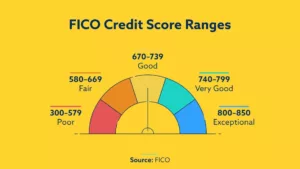 Question: A debt collector contacted me threatening to garnish my wages. I do not owe this debt because it is really old and I am sure the statute of limitations has passed. Should I be worried about the debt collector garnishing my wages? I have never been served any legal documents and don’t think there are any pending legal actions.
Question: A debt collector contacted me threatening to garnish my wages. I do not owe this debt because it is really old and I am sure the statute of limitations has passed. Should I be worried about the debt collector garnishing my wages? I have never been served any legal documents and don’t think there are any pending legal actions.
Answer: First, you must find out if there has been a lawsuit filed against you. Contact the debt collector and ask for the case number and where the lawsuit has been filed. Do not make arrangements to pay anything with the debt collector, just request the case number and jurisdiction where the case has been filed.
If the debt collector refuses to answer the questions, they have probably not filed a lawsuit and just threatening wage garnishment as a scare tactic.
I suggest you visit your local courthouse and have the clerk look for any lawsuit that may have been filed. You may be able to call during certain hours and have the court clerk research that information. But it really does not sound like the debt collector has actually filed a lawsuit; which, is a violation of the Fair Debt Collection Practices Act.
The FDCPA says a debt collector cannot threaten to take action it has no intention of taking. Any violation of the FDCPA by a debt collector can be brought as a legal action in small claims court if you care to pursue it.
Wage Garnishment Cannot Occur without a Court Order
A debt collector can garnish your wages, but only if it’s legal to do so in your state. But first a lawsuit must be filed against you. If a lawsuit results in a judgment against you, a court order can be issued to have your wages garnished.
When wages are garnished, the debt collector receives money deducted from your paycheck to apply towards the delinquent debt.
But keep in mind even if a debt collector is awarded a judgment against you, a debtor can negotiate payment of the judgment in the same way you could negotiate payment of the original debt. Your wages do not necessarily have to be garnished and the debt collector could agree to a one-time payment to settle the debt.
Just because a debt collector has a Court order, it does not mean your wages can be garnished for any amount either. The amount of wages that can be garnished is limited by your State’s Statutes.
But none of that can happen absent a Court order; and, any judgment must be entered into record. Check the records, if a judgment has not been entered there is no Court order. Without a Court order there is no wage garnishment.
In other words, a debt collector cannot just start garnishing your wages. It is a long process that involves them first suing you and then awarded a judgment against you. Even after all that, they would have to file additional documents to garnish your wages. Not to mention you must be properly served with all documents that are involved.
A debt collector does not have the power to garnish wages, only a Court can do that once a lawsuit has been filed and a judgment obtained. In your situation I think they are just testing you out to see if you can be intimidated into paying them. Check it out first. There probably has been no lawsuit filed. No wage garnishment, except for student loans, can be started without a lawsuit and Court order first. The best of luck to you.

















